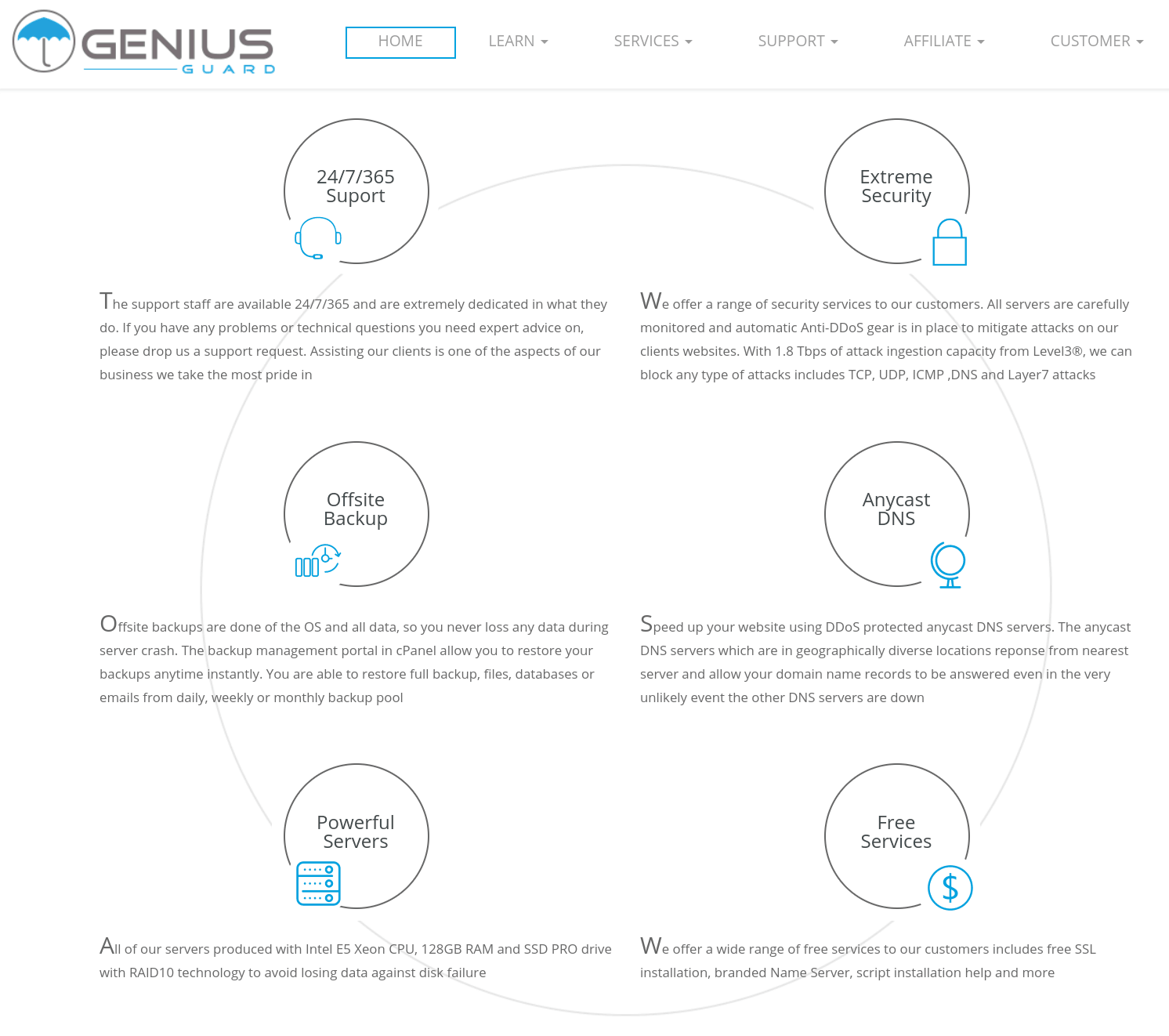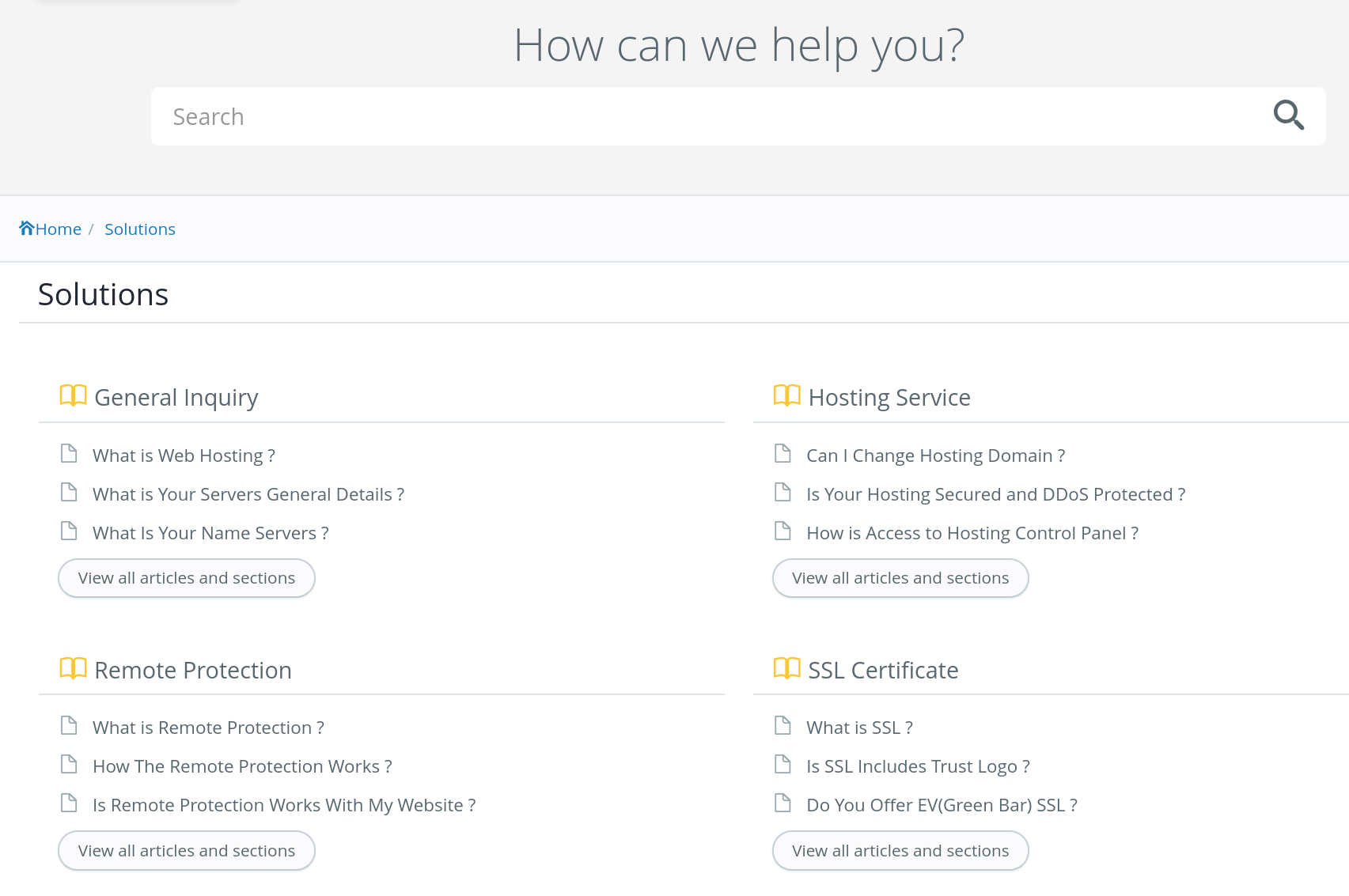
Since the start of its journey in 2009, Genius Guard has offered a broad range of innovative services to clients with varied requirements. This U.K. company is popular for its reliable DDoS-protected hosting solutions that provide clients with a highly secure online presence. According to its website, it has already mitigated more than five million DDoS attacks.
Genius Guard’s set of services includes Linux shared hosting, DDoS-protected hosting, domain registration, remote protection services, and SSL certificates. Its website is in English.
Features and Ease of Use

Genius Guard offers six Linux shared hosting packages. It also offers other kinds of hosting, under different categories, but they all look the same to me. With Genius Guard’s shared hosting packages, you’ll get:
- 5 GB to 10 GB SSD storage
- 500 GB to 1,000 GB bandwidth
- 5 Gbps to 50 Gbps protection
- MySQL database
- FTP account
- Multiple PHP
- DNS manager
- Antivirus
- Cron jobs
- Country blocking
Google’s PageSpeed Insights helps you gauge the performance of your website, particularly how fast it is and how well it handles the user experience. Performance can be improved through content caching, and reliability increased thanks to RAID 10 technology that replicates your data across multiple disks.
As already mentioned, there is remote DDoS protection that utilizes a reverse proxy. This also includes a web application firewall, together with speed acceleration to make your website safer and faster.
Pricing and Support

Genius Guard offers Linux shared hosting plans that come at a higher price point. You have the option to make payments in U.S. dollars using various payment methods, such as Perfect Money, PAYEER (with a 15% fee), AdvCash (with a 15% fee), and cryptocurrency.
Billing cycles range from monthly to annual, but there is no money-back guarantee (as far as I can see) to make you feel better about a bigger commitment. In fact, the terms-of-service state that, “No refunds will be issued after account created or violating TOS, even if you have paid for multiple months of hosting SERVICE in advance.”
Although 24/7 support is suggested, it seems that you can only summon support by submitting a ticket. Maybe more options are available once you’ve registered as a customer. For self-support, the blog contains some useful posts and tutorials, and the Help Desk page contains answers to many hosting-related questions.










